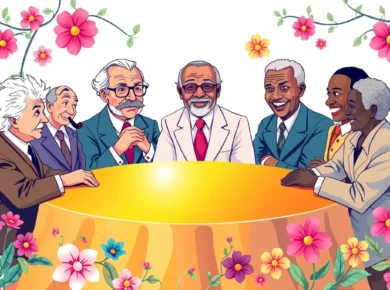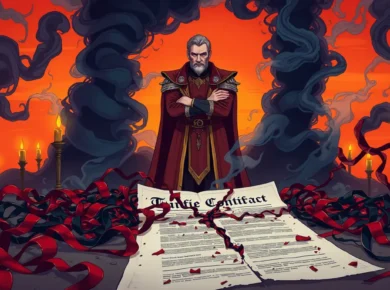Negotiation is an art that requires skill, strategy, and practice. Whether you’re a business leader, entrepreneur, or simply someone looking to improve your communication skills, studying famous negotiation examples can provide valuable insights and inspiration. In this article, we’ll explore some of the most notable negotiation examples in history, highlighting the tactics and techniques used by master negotiators.
The Power of Preparation: Nelson Mandela and the End of Apartheid
Nelson Mandela’s negotiation with the South African government to end apartheid is a testament to the power of preparation and strategic planning. Mandela spent years in prison, but he used that time to educate himself on the law, politics, and economics, making him a formidable negotiator. When he was finally released, he was able to negotiate a peaceful transition to democracy, using his knowledge and charisma to bring together rival factions.
Mandela’s approach was characterized by:
-
Active listening: He listened carefully to the concerns of all parties, including his opponents.
-
Creative problem-solving: He proposed innovative solutions, such as the Truth and Reconciliation Commission, to address the legacy of apartheid.
-
Building relationships: He established trust with his adversaries, creating a foundation for future cooperation.
The Art of Anchoring: Steve Jobs and the Apple IPO
Steve Jobs was a master of anchoring, a negotiation tactic that involves setting a high or low target price to influence the outcome. When Apple went public in 1980, Jobs negotiated a valuation of $1.8 billion, despite the company’s lack of profitability. He achieved this by:
-
Setting a high anchor: Jobs started with an ambitious valuation, making the eventual IPO price seem more reasonable.
-
Creating a sense of urgency: He created a sense of FOMO (fear of missing out) among investors, making them more willing to accept his terms.
-
Building a narrative: Jobs crafted a compelling story around Apple’s innovative products and future potential, making the company’s valuation seem justified.
The Importance of BATNA: The Camp David Accords
The Camp David Accords, brokered by Jimmy Carter in 1978, are a famous example of the power of having a strong BATNA (Best Alternative to a Negotiated Agreement). Carter brought together Israeli Prime Minister Menachem Begin and Egyptian President Anwar El-Sadat to negotiate a peace treaty. The key to success lay in:
-
Developing a strong BATNA: Carter had a clear understanding of the alternatives to a negotiated agreement, including the possibility of war.
-
Using time to your advantage: He used the isolation of Camp David to create a sense of urgency and focus among the negotiators.
-
Finding creative solutions: Carter proposed innovative solutions, such as the concept of “normal relations” between Israel and Egypt, to overcome sticking points.
The Role of Emotions: The Cuban Missile Crisis
The Cuban Missile Crisis, which brought the world to the brink of nuclear war in 1962, is a famous example of the importance of emotional intelligence in negotiation. President John F. Kennedy and Soviet Premier Nikita Khrushchev engaged in a high-stakes game of brinksmanship, with Kennedy using:
-
Empathy: He acknowledged the Soviet Union’s concerns and fears, creating a sense of mutual understanding.
-
Self-awareness: Kennedy recognized the emotional toll of the crisis on his own team and the American public.
-
Creative communication: He used back-channel diplomacy and carefully crafted public statements to convey his message to Khrushchev.
The Power of Silence: The IBM-Lenovo Deal
In 2004, IBM sold its PC division to Lenovo for $1.75 billion. The negotiation was marked by the strategic use of silence by Lenovo’s CEO, Yang Yuanqing. He:
-
Listened actively: Yang listened carefully to IBM’s concerns and proposals, without revealing his own hand.
-
Used silence to create uncertainty: He created a sense of uncertainty among IBM’s negotiators, making them more willing to compromise.
-
Made a strong first offer: Yang made an aggressive initial offer, setting the tone for the negotiation.
FAQ
What is the most important skill in negotiation?
Effective communication and active listening are crucial skills in negotiation.
Can negotiation be learned?
Yes, negotiation is a skill that can be learned and improved with practice, training, and experience.
What is the difference between a negotiation and a compromise?
A negotiation is a dialogue between two or more parties to reach a mutually beneficial agreement. A compromise is a concession made by one or both parties to reach a settlement.
Can you negotiate with someone who is not willing to negotiate?
Yes, but it requires a deep understanding of the other party’s interests, needs, and motivations. It’s essential to find creative solutions that meet their concerns while still achieving your goals.
What is the role of power in negotiation?
Power can be a significant factor in negotiation, but it’s not the only factor. A skilled negotiator can use various tactics, such as building relationships, creating value, and using time to their advantage, to level the playing field.
How do you handle a difficult negotiator?
Stay calm, composed, and professional. Avoid taking things personally and focus on the issues at hand. Use active listening, ask open-ended questions, and seek creative solutions to find a mutually beneficial agreement.
What is the best way to prepare for a negotiation?
Research the other party’s interests, needs, and motivations. Develop a clear understanding of your own goals, limits, and alternatives. Prepare a range of creative solutions and be willing to adapt to changing circumstances.
Can you negotiate via email or text message?
While it’s possible to negotiate via email or text message, it’s often less effective than face-to-face or phone negotiations. Nonverbal cues, tone, and context can be lost in digital communication, leading to misunderstandings and miscommunication.
Conclusion
Famous negotiation examples offer valuable lessons for anyone looking to improve their negotiation skills. By studying the tactics and techniques used by master negotiators, we can develop our own approach to negotiation, becoming more effective communicators and problem-solvers. Remember to prepare thoroughly, stay flexible, and focus on building relationships – and you’ll be well on your way to becoming a skilled negotiator.










